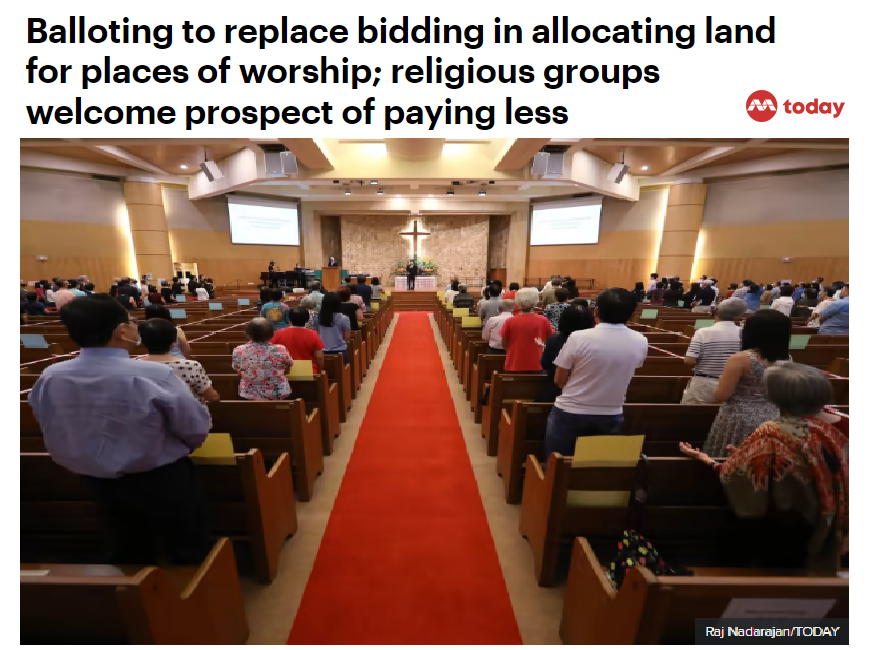The recent article sheds light on the changes in land acquisition for places of worship in Singapore, with religious organizations transitioning from a bidding process to a balloting process. This shift is a response to the growing concerns regarding the escalating prices of land, ensuring a fairer and more accessible approach to land allocation.
Under the new balloting process, religious organizations will no longer have to compete in a bidding process for land to build their places of worship. Instead, they will go through a balloting system, which aims to provide a level playing field and equal opportunities for all religious communities.
This change is a significant step towards addressing the disparity in land purchases. By removing the competitive bidding process, religious organizations can focus on securing land based on chance rather than financial capabilities. This allows for a more equitable distribution of land resources, ensuring that all religious communities have a fair chance of obtaining suitable spaces for their congregations.
It is worth noting that the new balloting process does not apply to mosques. The government directly sets aside land for mosques at predetermined prices, ensuring their continuous availability and accessibility for the Muslim community.

This shift in land acquisition for places of worship reflects a commitment to inclusivity and affordability. By implementing a balloting process, the aim is to create a more transparent and accessible system that takes into account the varying financial capacities of religious organizations.
In conclusion, the transition from a bidding process to a balloting process for land acquisition in the context of places of worship marks a positive step towards addressing the disparity in land purchases. By removing the competitive element, this new approach ensures a fairer and more accessible distribution of land resources for religious organizations. While the balloting process does not apply to mosques, the government's direct involvement in allocating land for mosques reinforces their importance and accessibility for the Muslim community. This move reflects Singapore's commitment to fostering an inclusive and diverse society by providing equitable opportunities for all religious communities to establish their places of worship.

